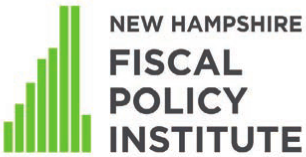Rate reductions in New Hampshire’s Business Profits Tax and Business Enterprise Tax implemented between 2016 and 2022 did not appear to spur sufficient economic growth to offset revenue losses.
While combined business tax revenues rose 118% between state fiscal years 2015 and 2022, the concurrent tax rate reductions did not cause this revenue growth. As detailed in NHFPI’s August 2, 2023 Issue Brief, six key pieces of evidence support this conclusion.
First, while BPT revenues increased during this time, BET revenues stagnated. Available state data show BET receipts were lower in tax years 2019 and 2020 than in 2015, before the rate reductions.
Second, from the creation of the BPT in 1970 through 2022, there is no statistically significant correlation between the tax rate and job growth, or between the tax rate and gross state product growth in New Hampshire relative to New England overall.
If the rate reductions were creating sufficient economic growth to offset revenue losses, responses to lower rates would likely be detectable. Personal income per capita growth, after adjusting for consumer price inflation in New England, was similar across Maine, Massachusetts and New Hampshire between 2015 and 2022.
Third, combined state-level corporate tax revenues in other New England states, as well as among all 50 states, rose similarly or faster than New Hampshire business tax revenues between fiscal years 2015 and 2021, making the Granite State’s recent increase far from unique.
Fourth, multinational entities pay the majority of BPT revenue, making their corporate profits a key part of the tax base.
National corporate profits have surged since 2015, particularly since the pandemic’s beginning, due to influences beyond New Hampshire policy.
Fifth, while the number of business tax filers increased between 2015 and 2020, revenues rose much faster, suggesting growth was not driven by an influx of businesses.
Sixth, research from other states and nationally, including peer-reviewed research published between 2013 and 2022, does not indicate reducing state corporate tax rates is likely to increase revenue, or have a dramatic effect on economic activity overall.
This evidence does not eliminate the potential for business tax rate reductions to help the economy, but does show these reductions did not have a detectable impact on the New Hampshire economy that led to state revenue growth, or offset losses, across tax years 2016 to 2022.
Rate reductions during this period likely led to between $496 million and $729 million in forgone State revenue.
Phil Sletten is research director of the NH Fiscal Policy Institute. The NHFPI Policy Memo is a partnership of the NH Fiscal Policy Institute and NH Business Review.